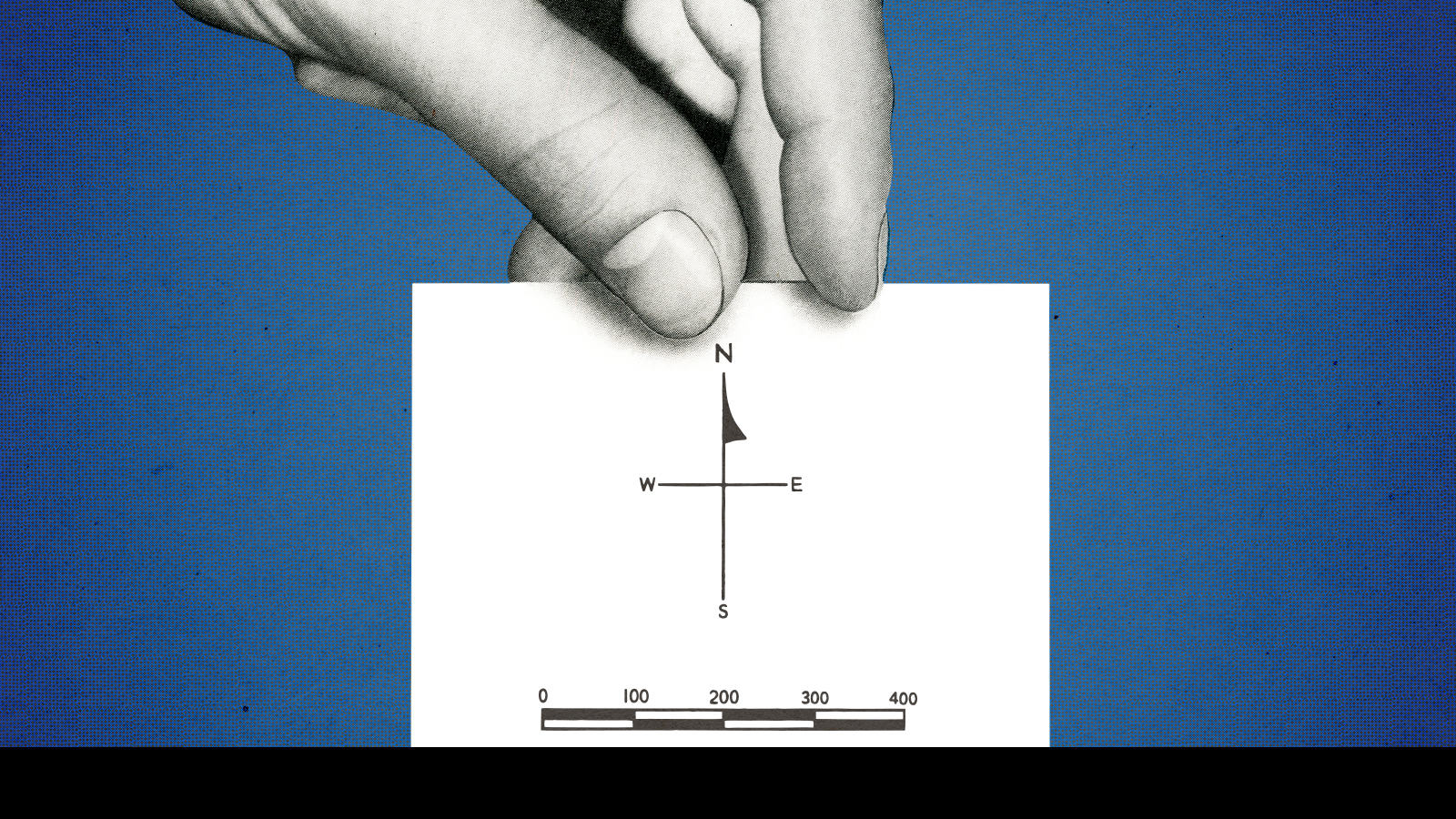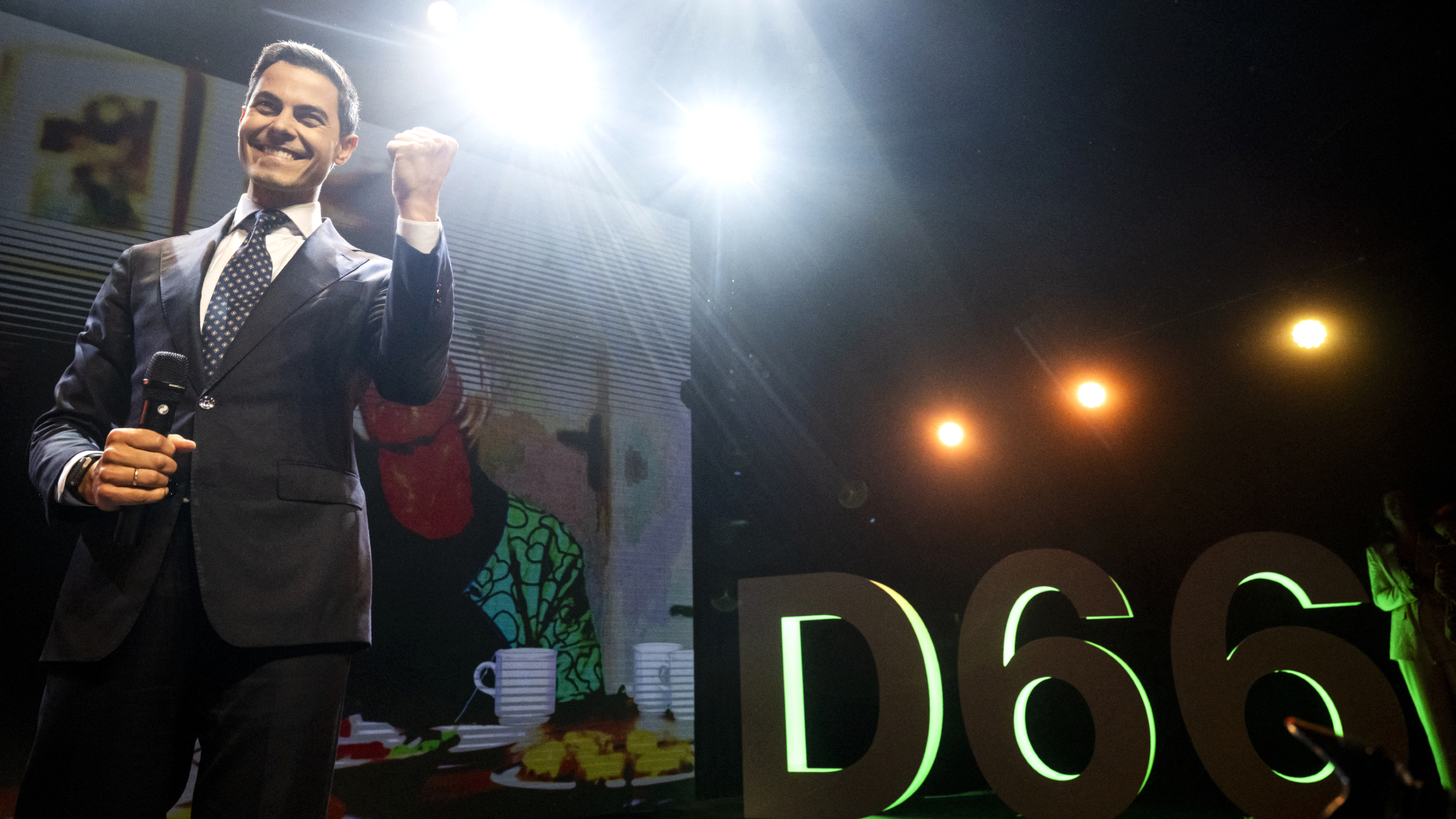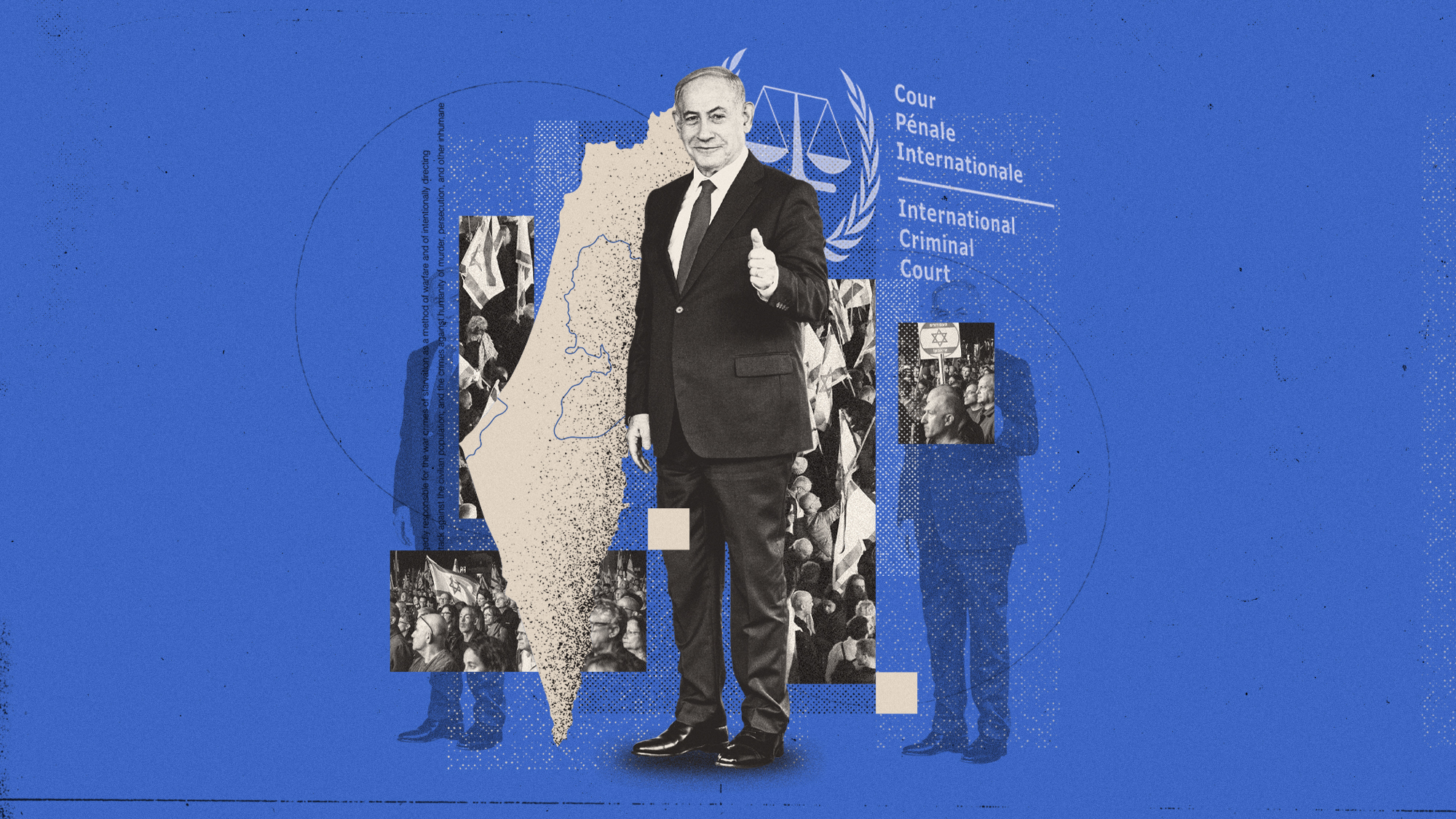The case for empowering Americans to vote with their feet
Your ballot probably doesn't matter. 'Foot voting' does.


A free daily email with the biggest news stories of the day – and the best features from TheWeek.com
You are now subscribed
Your newsletter sign-up was successful
American democratic institutions are in crisis. One of the worst flaws of the status quo is the near-powerlessness of the individual voter over the policies which determine so much of daily life. Closely related is the need to promote opportunity and choice for the poor and disadvantaged. Both these problems can be greatly alleviated by expanding opportunities for people to "vote with their feet." If you don't like state or local laws, it should be easier to escape them.
We normally think of voting at the ballot box as our principal means of exercising political choice, and ballot-box voting has great value. But it also has two severe limitations: the very low odds that an individual vote will make a difference, and the resulting incentive to make poorly informed decisions. Foot voting is superior on both dimensions.
In a presidential election, the average voter has only about a 1 in 60 million chance of affecting the outcome; higher in close swing states, but lower in strongly "red" or "blue" ones. In state and local elections, the odds are higher but still generally very low.
The Week
Escape your echo chamber. Get the facts behind the news, plus analysis from multiple perspectives.

Sign up for The Week's Free Newsletters
From our morning news briefing to a weekly Good News Newsletter, get the best of The Week delivered directly to your inbox.
From our morning news briefing to a weekly Good News Newsletter, get the best of The Week delivered directly to your inbox.
Yet meaningful freedom requires the ability to make a decisive choice, or at least have a high probability of doing so. It is difficult to claim a person has meaningful religious freedom if he has only a 1 in a million chance of determining which religion he will practice. Similarly, a person with only a 1 in a million chance of deciding what views she's allowed to express surely does not have meaningful freedom of speech.
What is true of freedom of speech and freedom of religion is also true of political freedom. A person with only an infinitesimal chance of affecting what kind of government policies she is subjected to has little, if any, genuine political freedom. And that is exactly the position voters find themselves facing in all but the very smallest of elections.
Because of the very low impact of their votes, ballot box voters have strong incentives to be "rationally ignorant." In a situation where there's little or no benefit to acquiring additional knowledge, it's often perfectly rational to remain largely or completely uninformed about the questions at issue.
This is exactly what most Americans do on most political issues. Survey data consistently show voters often lack even very basic knowledge about the candidates and policy questions in any given election. For example, only about a third of American voters, in most surveys, can even name the three branches of the federal government: executive, legislative, and judicial.
A free daily email with the biggest news stories of the day – and the best features from TheWeek.com
Voters also often have little incentive to analyze whatever information they do learn in a logical, unbiased way. To the contrary, when there are few or no negative consequences to error, it is rational to make almost no effort to control one's biases. Irrationality becomes rational. For example, many routinely overvalue any evidence that supports their pre-existing views while downplaying or ignoring anything that cuts the other way. These tendencies towards biased evaluation of information are large and widespread among voters on both sides of the political spectrum.
The shortcomings of ballot box voting are exacerbated by the enormous size and complexity of modern government. Federal spending now accounts for a gargantuan 30 percent of U.S. GDP, a figure inflated by relief spending related to the COVID-19 pandemic. But it was an already high 21 percent in 2019. Perhaps more importantly, federal regulation now extends to cover almost every major aspect of the economy and society, including health care, education, pensions, consumer regulations, on down to shower head and toilet flows.
Even relatively well-informed voters find it virtually impossible to keep track of more than a small fraction of all of that government activity. As a result, many policies are routinely decided by politicians, bureaucrats, and narrow interest groups with little meaningful voter input.
Things are very different when people "vote with their feet." When you decide what jurisdiction to live in, that's a decision over which you have real control. That in turn creates strong incentives to seek out relevant information and evaluate it in an unbiased way. You wouldn't move to a new neighborhood, let alone a new state, without knowing what it's like.
The same applies to most consequential private-sector decisions. You probably devote more time and effort to deciding what television to buy than to deciding who to vote for in any election. And that's rational: It's not that the television is more important than who governs the country, but that your decision about the TV has more actual impact on your life.
This logic is backed by both historical evidence and laboratory experiments indicating that people faced with "foot voting" decisions seek out greater information and evaluate it more rationally than those assessing political information for use at the ballot box. Indeed, throughout American history, foot voting has provided valuable opportunities for expanding political choice, especially for the disadvantaged.
Perhaps the best-known example is the movement of millions of Black Americans from the Jim Crow-era South to the North and West, where they benefited from greater opportunity and relatively lower levels of official racial discrimination. Settlers moving westward in the 19th and early 20th centuries are another good example. These types of moves offered not only economic opportunity but also greater freedom for many disadvantaged groups. Several newly formed Western states were pioneers in granting relatively equal legal rights to women, including giving them the vote and allowing them to enter previously barred professions. In more recent times, foot voting has been a boon to gays and lesbians seeking more tolerant states and localities.
Foot voting continues to be a valuable resource for many Americans today. Recent research indicates moving to an area with lower poverty rates can have particularly large benefits for the life prospects of poor children, substantially increasing their incomes and college attendance rates, while reducing the likelihood of them becoming single parents.
Some 3 million people make interstate moves in America each year, and over 30 million — nearly one in 10 U.S. residents — move in all. That pace continued even during the pandemic of the last 18 months.
Some moves have little or no connection to differences in government policy, of course. But data consistently show a high percentage are driven by factors such as job opportunities, housing costs, and tax rates that are heavily influenced by policy. States with low taxes, relatively cheap housing, and flexible labor markets — such as Arizona, Idaho, Texas, and Florida — have consistently been among the leaders in net in-migration in recent decades, while states with the opposite set of policies (most notably, California, New York, and Illinois) have been among the net losers.
Foot voting in the private sector also has great benefits, because, in many places, private organizations offer services traditionally associated with regional and local governments. The most significant examples are private planned communities, such as condominiums and homeowners associations, which provide services such as environmental amenities, garbage disposal, education, and security.
Almost 74 million Americans lived in such communities as of 2019. That figure undercuts claims that private communities are just a tool for the wealthy to wall themselves off from society. For foot voters, private communities have important advantages over traditional state and local governments. The biggest is lower moving costs: A given area typically can fit many more private communities than political jurisdictions. As a result, it is often possible to move from one to another without giving up jobs or family connections.
Sadly, over the last several decades, foot voting in America has become more difficult and costly, especially for the poor and disadvantaged, who have the most to gain. Fortunately, much can be done to alleviate these obstacles.
The single biggest problem is the rise of exclusionary zoning, which makes it difficult or impossible to build new housing in response to demand. If people cannot afford to live in areas with economic and social opportunities, they'll remain locked out from them — often trapped in failing communities where it is difficult to escape poverty. This is an area where there is a strong, even if often unrecognized, common interest between the increasingly Republican white working class and their mostly Democratic Black and Hispanic counterparts.
Economists and land-use scholars across the political spectrum have long known that restrictive zoning cuts off millions of people from housing and job opportunities. New evidence suggests zoning restrictions inhibit mobility and economic growth even more than previously thought, which has reinforced the broad cross-ideological expert agreement on this point.
While not as severe as the impact of zoning, state-by-state occupational licensing also greatly reduces mobility and undercuts foot voting. Licensing has expanded to the point where some 30 percent of American workers need licenses to be able to do their jobs. In some states, that even includes florists and tour guides. Research also indicates most of these laws do far more to suppress competition than protect consumers.
Much can be done as well to expand foot voting opportunities in the private sector, including by breaking down regulations that inhibit the establishment of new private communities and expanding school choice options, especially for the poor. Studies show private schools included in school choice programs generally provide better educational services than public equivalents, even when controlling for the socioeconomic background of students and other similar variables. In addition, competition from private schools under voucher programs leads to improvement by public schools in the same areas.
The advantages of foot voting in education were dramatically illustrated by recent events during the COVID crisis. Numerous public schools were shut down long past the point where evidence showed schools do not pose a significant risk of spreading the disease, in many areas providing grossly inadequate "virtual" education, which was especially harmful for poor and minority students. Meanwhile, most private schools remained open and continued to serve students with little or no added COVID spread. As a result, private school enrollment grew dramatically.
Foot voting is also increasingly inhibited by the enormous growth of federal spending and regulation. It is impossible to "vote with your feet" against federal government policies except through the costly step of leaving the country entirely.
This problem can be mitigated by devolving control over more issues to state and local governments and to the private sector. Doing so can also mitigate the dangerous polarization that has done so much to poison our political system: With fewer issues decided by the federal government, people no longer need to feel so much fear at the prospect of the opposing party controlling the White House and Congress.
Within states, some progress in breaking down foot voting barriers has been made over the last several years, including on zoning reform and occupational licensing reform. California, which has some of the most severe regulatory obstacles to new housing construction, recently enacted two notable reform laws. But much remains to be done.
Foot voting can also be enhanced by giving greater autonomy to local governments and to the private sector. Often, foot voting between localities — and even more so between private-sector organizations, such as private planned communities — is cheaper and easier than that between states. It can offer a wider range of choices, too. The U.S. has many thousands of local governments and private communities, but only 50 states.
To their credit, progressives have increasingly recognized the need to reform zoning and licensing laws and have begun to promote changes. But many on the left have been slow to acknowledge the more general case for expanding foot voting opportunities, especially for minorities and the poor. The fact that leading blue states, such as California, have been losing people to red and purple states, should lead to overdue reconsideration of some of the former's policies, notwithstanding the fact that red states have many flaws of their own.
Progressives can learn some useful lessons from the housing and employment policies that have made Texas a leading magnet for foot voters, even as they rightly decry such abuses as the SB 8 anti-abortion law and that state's leaders' reprehensible role in efforts to overturn the 2020 election. Conservatives, too, would do well to focus more on policies that expand foot voting opportunities, as opposed to trying to use federal and state power to wage "culture wars" against those with different values.
Foot voting can't solve all the problems of American democracy. And, obviously, it cannot be the only factor considered in determining the allocation of power between different levels of government and the private sector. But expanding foot voting opportunities can do much to enhance political freedom for all Americans, particularly the poor and disadvantaged who stand to benefit most.
Parts of this article are adapted from the revised edition of Free to Move: Foot Voting, Migration and Political Freedom, published this month, and from a post at the State and Local Government Blog.
Ilya Somin is Professor of Law at George Mason University. He is the author of Free to Move: Foot Voting, Migration, and Political Freedom (rev. ed., 2021), Democracy and Political Ignorance: Why Smaller Government is Smarter (rev. ed. 2016), and The Grasping Hand: Kelo v. City of New London and the Limits of Eminent Domain (2016). Somin has also published articles in a variety of popular press outlets, including The Washington Post, The Wall Street Journal, Los Angeles Times, CNN, The Atlantic, and USA Today. He is a regular contributor to the popular Volokh Conspiracy law and politics blog, now affiliated with Reason magazine.
-
 The problem with diagnosing profound autism
The problem with diagnosing profound autismThe Explainer Experts are reconsidering the idea of autism as a spectrum, which could impact diagnoses and policy making for the condition
-
 What are the best investments for beginners?
What are the best investments for beginners?The Explainer Stocks and ETFs and bonds, oh my
-
 What to know before filing your own taxes for the first time
What to know before filing your own taxes for the first timethe explainer Tackle this financial milestone with confidence
-
 Japan’s Takaichi cements power with snap election win
Japan’s Takaichi cements power with snap election winSpeed Read President Donald Trump congratulated the conservative prime minister
-
 How realistic is the Democratic plan to retake the Senate this year?
How realistic is the Democratic plan to retake the Senate this year?TODAY’S BIG QUESTION Schumer is growing bullish on his party’s odds in November — is it typical partisan optimism, or something more?
-
 The billionaires’ wealth tax: a catastrophe for California?
The billionaires’ wealth tax: a catastrophe for California?Talking Point Peter Thiel and Larry Page preparing to change state residency
-
 Bari Weiss’ ‘60 Minutes’ scandal is about more than one report
Bari Weiss’ ‘60 Minutes’ scandal is about more than one reportIN THE SPOTLIGHT By blocking an approved segment on a controversial prison holding US deportees in El Salvador, the editor-in-chief of CBS News has become the main story
-
 Has Zohran Mamdani shown the Democrats how to win again?
Has Zohran Mamdani shown the Democrats how to win again?Today’s Big Question New York City mayoral election touted as victory for left-wing populists but moderate centrist wins elsewhere present more complex path for Democratic Party
-
 Dutch center-left rises in election as far-right falls
Dutch center-left rises in election as far-right fallsSpeed Read The country’s other parties have ruled against forming a coalition
-
 Millions turn out for anti-Trump ‘No Kings’ rallies
Millions turn out for anti-Trump ‘No Kings’ ralliesSpeed Read An estimated 7 million people participated, 2 million more than at the first ‘No Kings’ protest in June
-
 Has the Gaza deal saved Netanyahu?
Has the Gaza deal saved Netanyahu?Today's Big Question With elections looming, Israel’s longest serving PM will ‘try to carry out political alchemy, converting the deal into political gold’
